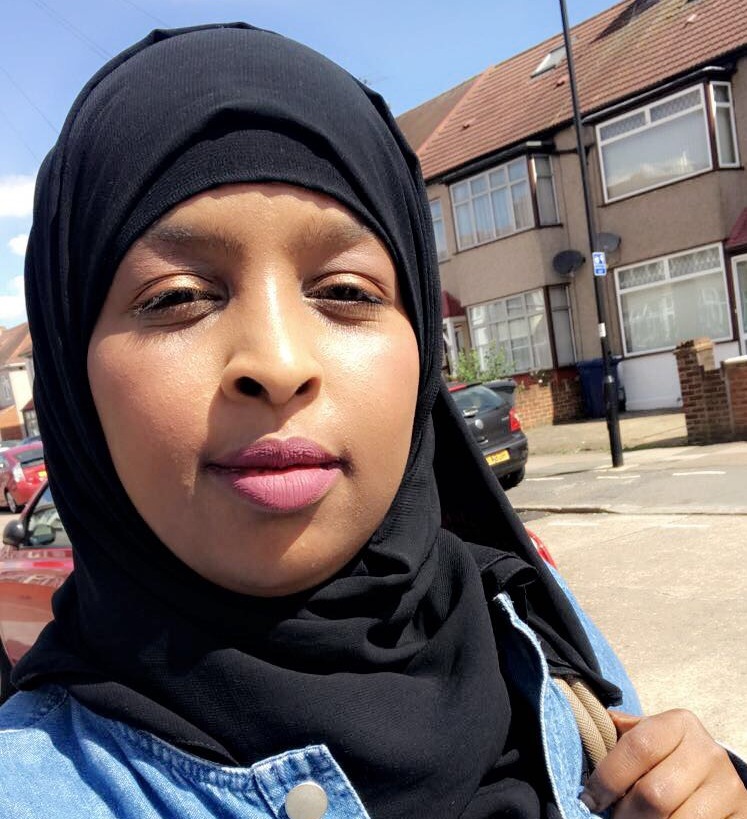
Ramadan and Responsibility
12 Jun 2018, 9:31 a.m. in Global Stories by Osob Gabdon
I was diagnosed with type 1 diabetes in 1984, when my family lived in India, at the age of 2 years old. We later moved back to my parent’s homeland, Somalia. We then moved to England in November 1992 because of the civil war in Somalia. We came to join my dad, who was already settled here. My mum was my main carer until the age of 11 or 12 when I wanted to have my own independence because I was getting ready to start high school.
Growing up in a Muslim environment, we learned about the five pillars of Islam (the basis of Islam). Ramadan, a month of fasting, is one of the five pillars. It marks the time when the Quran was revealed to our Prophet. Ramadan comes on the 9th month of the Islamic calendar and usually lasts 29 or 30 days, depending on the sighting of the half moon. It is a time when family and friends gather to eat, socialise, and interact with the community. Prayers are even more meaningful and they go on late into the night.
During Ramadan, everyone tries to do as many good deeds as they can, like giving to charity, because every act is multiplied during this month. Fasting is obligatory for all adult Muslims, except those who are suffering from an illness, travelling, elderly, pregnant, breastfeeding or menstruating.
As you can see, because I have diabetes I do not have to fast. I carried a lot of guilt about this over the years. It made me feel like less of a Muslim, and I believed that I needed to work even harder to gain rewards. I was feeling like the odd one out of my sisters, parents and the entire community that was fasting – or that is what it seemed like it to me.

Back then I would go without eating for as long as I could, but soon came to realise I would either go sky high or have a low blood sugar by the time lunch time came. Every time I failed to fast because it impacted my blood sugars, I would be heartbroken. ‘‘There are only a few hours left, why is food so important?’’ I would think. Everyone else seems to do it without any effort. I would also hide eating when I was at home because of my shame that maybe I would encourage someone else to break their fast.
My mum told me I did not have to fast, but my brain was reminding me that this was one of the five pillars of Islam. My mind could not understand because I could see how important this month was to everyone I loved. The guilt and anxiety was so strong. I felt like I had to explain myself and my diabetes to people, which meant I faced a lot of ignorance about diabetes, so I also felt angry and isolated. Why couldn’t anyone understand? Why couldn’t they see my pain, guilt and loneliness?
At school and college, I continued to hide away when I was eating during Ramadan. Even if I was having a low blood sugar, I would go out of sight and eat. I did not want to deal with the questions, the judgements and misunderstandings. I was fighting my own insecurities; my own guilt did not want to accept any kind input from others. My reasoning would often be that I was menstruating, as that’s what most people would be thinking anyway.
As they say, with age comes wisdom. I eventually learned that during the month of Ramadan I had to pay for food so that a poor person could break their fast. My parents where doing it on my behalf until I was old enough. I realized that even if I could not fast, I would be helping someone to eat, so I was also worthy of rewards in this blessed month.
The diabetes community also helped me to come out of my shell. For many years, I didn’t know any other diabetics, which increased my feelings of isolation. Then I came across some diabetes websites and forums, and a whole new world was opened to me. I found all these people who understood my language, worries, stresses and my isolation. I felt accepted and valued, and I learned to express myself without judgement, which really helped me. I started to write about my feelings when I was going through hard times. The diabetes community gave me that push to post online without shame.
I learned from others around the world who have diabetes about how they deal with it during Ramadan and big celebrations like Eid. I wrote about my own experience of diabetes and Ramadan and someone told me they where glad to read about my experience, especially because they had recently started an insulin pump. I was gobsmacked I was helping others who were facing the same feelings and struggles I was.
I have met some diabetics that do fast in Ramadan and I feel great joy for them, although I am bewildered how they do it. If they are safe and have a supportive team to enable them to do this, then that is good.
To those who, like me, do not fast – I also respect their opinions. By not fasting and being the odd one out, we are taking charge and empowering ourselves by knowing our rights. We handle diabetes, work, life and big religious celebrations with strength and responsibility. All that matters is that we are safe, informed, and that we make choices that are the best for our health and well-being.





